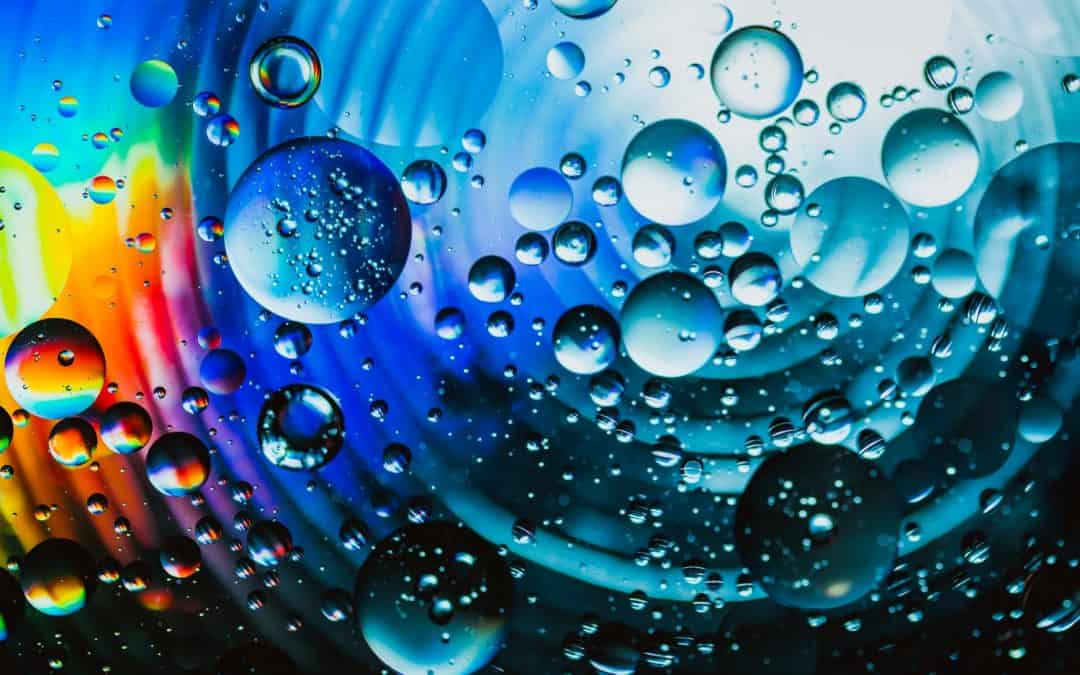Elements: Water
Increase: Kapha and Pitta
Decrease: Vata
Found in Sweet, Sour and Salty tastes
Balanced by Dry, Bitter, Pungent and Astringent
Action: necessary for motion, enables the smooth movement of joints, tendons and ligaments, aids secretion process.
Positive effect: increases strength, nourishes the tissues, and improves complexion, moisture, lubrication, vigor, sexual power, softness, compassion and love.
Oils are used throughout Ayurveda to restore strength. Massage with oil prevents premature aging and bestows a healthy, glistening sheen to the skin. Even body builders oil their skin to appear healthy and strong. Oil repels water, preventing evaporation of fluids through the skin much as a film of oil over a simmering soup prevents loss of steam. It moisturizes while it stimulates secretions, helping replenish and rebuild bodily fluids
Internal Oleation
Oily foods are generally bland or sweet. They facilitate easy elimination of wastes, soften dry and hard tissues, lubricate joint spaces, and increase strength wherever there is debility. A teaspoon of ghee with meals helps build impregnability, weight, and strength. Internal oleation is a process used in Panchakarma cleansing therapies to pull fat soluble toxins from peripheral tissues for elimination from the body and to soften the tissues.
Oily Personality Traits
Fats nourish and soften the liver, creating relaxation, vigor, and stabilizing emotions, all highly important for Vata. Oil promotes compassion, kindness, tenderness, and affection. Properly oiled individuals have a “smooth” personality. Oil is soothing and can help a person relax. Like water off a duck’s back, the stable quality of well-oiled individuals makes them thick skinned and impervious to insult. Healthy oiliness is steadfast, but pathological oiliness creates greed and attachment.
Types of Oils
There are four types of oils in Ayurveda: ghee (clarified butter), vegetable oil, muscle fat, and bone marrow. Ghee is an important medicine for building strength in Ayurveda because it is the fat that is lightest and easiest to digest. Marrow is the heaviest and most difficult to digest.
The Best Oils for each Dosha
Vata: Olive, Sesame, Ghee
Pitta: Sunflower, Coconut, Butter, Ghee
Kapha: Corn, Safflower, Olive, Mustard
Oils In excess: creates phlegm and stagnation in the body channels, weakens digestion.
Pathological oiliness aggravates Kapha and Pitta. It overwhelms the liver’s storage and processing capacity, causing high cholesterol, stagnant, dense blood, and lymphatic obstruction. Oil clogs fluid vessels. Whereas blood stagnation from sweets and carbohydrates creates pure Kapha type mucous and phlegm, blood stagnation from excess oil creates gall bladder stagnation and skin outbreaks. When lymphatic obstruction blocks release of cellular waste products, the surface of the skin turns red and flushed. Oil makes the blood sticky, causing plaque formation and eventually atherosclerosis.
Excess oleation causes water retention in the abdomen, teary eyes, a thick coating on the tongue, and soft, buttery stools. Oily foods decrease gastric secretion but increase bile production. As it suppresses hydrochloric acids, fat specifically inhibits protein digestion.
Treatments – Reducing Fat, Cholesterol, & Oiliness
Elements: Ether, Air, Fire
Universal qualities: Dry, Bitter and Pungent
Bitter tasting foods aid fat metabolism, release liver fat congestion and heat buildup, clear plaque from blood vessels, and reduce weight. Bitters cholagogues, such as dandelion root, help scrape fats from tissues. Punarnava and amalaki stimulate microcirculation and metabolism at the cellular level. Blood thinners like turmeric counteract the dense stickiness of oil, invigorating the blood and burning off fats. Mild laxatives like triphala help eliminate fats through the GI tract. Triphala Guggulu is famous for reducing cholesterol. Exercise and breathing techniques like pranayama help metabolize unwanted fats.
Ingredients hat are oily
Vegetables
Avocado
Meats
Beef, Bone Broth, Bone Marrow / Fat, Chicken, Chicken Fat (rendered), Duck, Egg Yolk, Eggs, Fish, Internal organs, Liver (chicken, beef), Lobster, Mayonnaise, Pork, Rabbit, Red Meat Fat (rendered), Salmon, Sardines, Shrimp, Turkey
Dairy
Blue Cheese, Butter (salted &unsalted), Cheddar Cheese, Cottage Cheese, Cream Cheese, Feta Cheese, Goat Cheese, Mozzarella Cheese, Paneer, Parmesan Cheese, Romano Cheese, Sour Cream
Nuts-Seeds
Almond Butter, Almonds, Brazil Nut, Coconut Butter, Coconut Cream, Coconut Flakes, Coconut Milk, Coconut Water, Flax Seed, Hazelnut, Hemp Seed, Hickory Nuts, Macadamia Nuts, Peanuts, Pecans, Pine Nuts, Pistachio, Sesame Seeds, Sunflower Seeds, Tahini, Walnuts
Oils
Cacao Butter, Canola Oil, Coconut Oil, Corn Oil, Flax Oil, Ghee, Lard (pork fat), Mustard Oil, Olive Oil, Safflower Oil, Sesame Oil, Soy Bean Oil, Sunflower Oil
Spices
Poppy Seed

